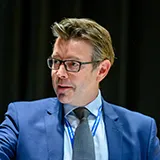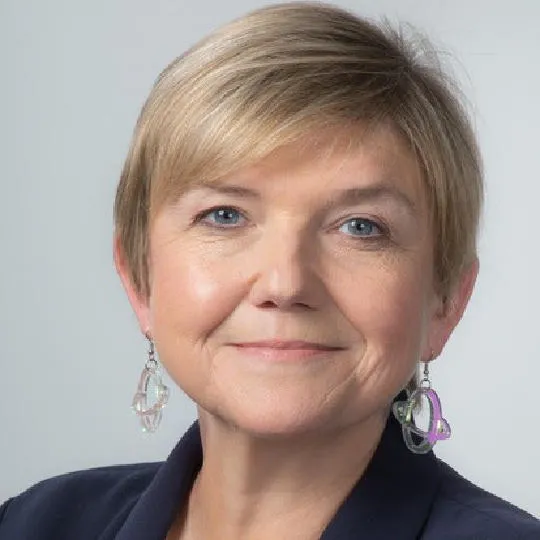“It does feel like a time of instability and risk of miscalculation and escalation. It seems likely to me, partially as the west’s operational advantage has started to erode as technology has evolved, that we should expect that military instruments will potentially to be used more and asked to do more.”
06 December 2024
We're in a much more volatile and dangerous period says Chief of the Air Staff
In an address at the Freeman Air and Space Institute’s fourth annual Chief of the Air Staff (CAS) Lecture , Sir Richard Knighton discussed the current challenges of leading the RAF in these demanding geopolitical times and highlighted the key factors that are influencing the RAF’s future strategy.
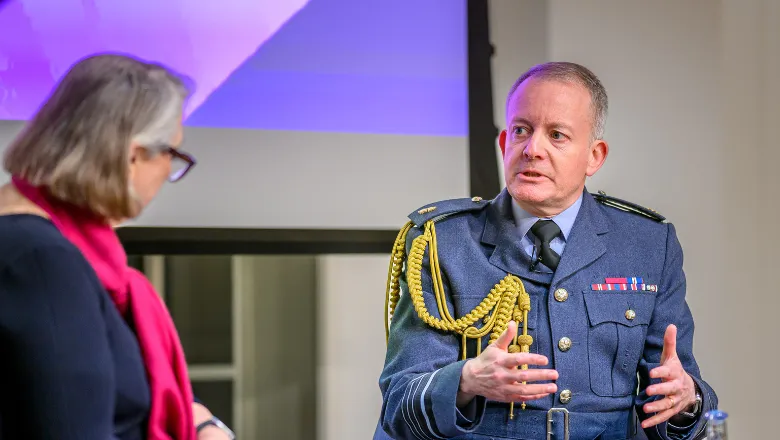
Joined by BBC broadcaster and former Defence Correspondent Caroline Wyatt, Sir Richard began the discussion by emphasising the importance of air defence in today’s world, calling for a multi-domain, international and layered approach to tackling both current and future threats.
He added that while the UK has had a period of operational advantage, with “the ability to have air supremacy almost ubiquitously,” we are now in a period that is strategically “much more volatile” and “dangerous.”
Addressing the ongoing war in Ukraine, Sir Richard reflected on the lessons learned from the conflict, highlighting the importance of deterrence and it’s key role in modern warfare.
“Deterrence matters, we don’t want to get into the kind of fight we see Ukraine in. In 1936 the UK was spending 2.9% of GDP on defence, 1939 it was spending 9% and by 1945 it was spending 52%, war is costly, so deterrence is back and matters.”
“From an air perspective I think we can see both in the middle east and in the Ukraine, the central importance of air control and the role that air power plays in that.”
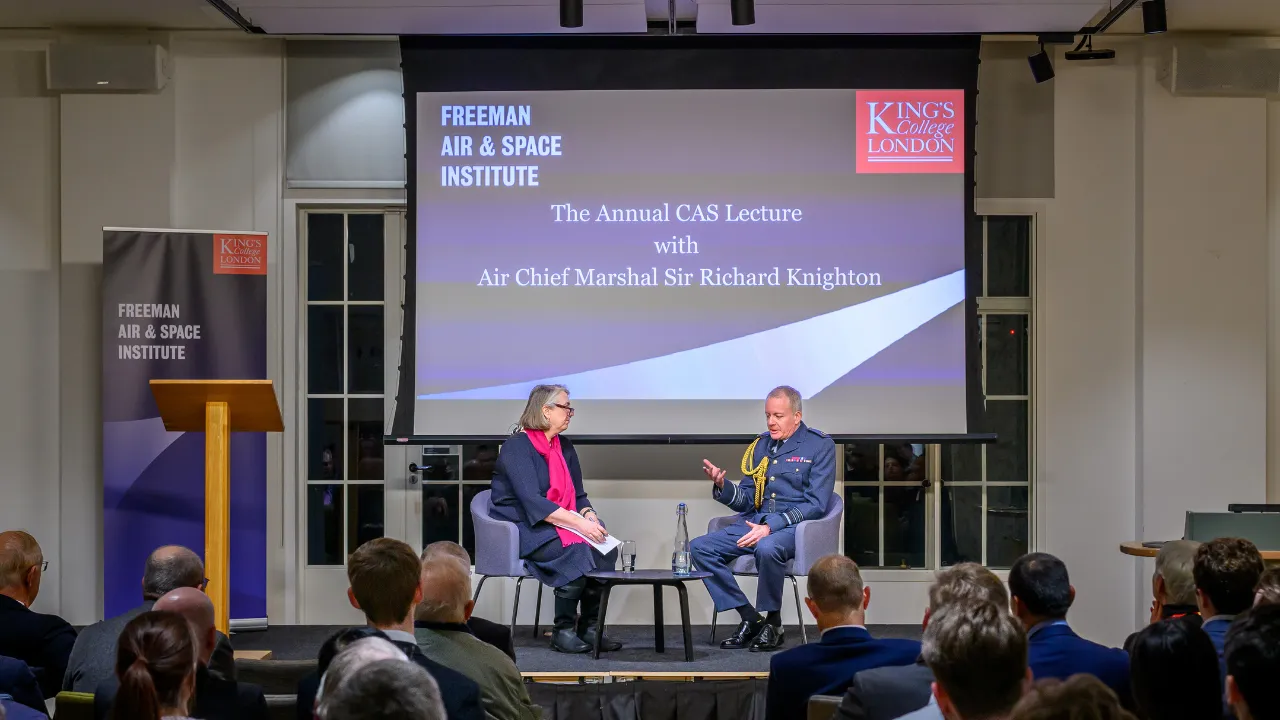
The discussion continued with a focus on the importance of air defence in today’s geopolitical climate as the conversation shifted to how operational agility could be achieved, particularly through the integration of all five domains: space, cyber, land, sea and air.
“If you look at the deeper strike operations, they are clearly integrating across all five of those domains,” he said.
“Integrated force is at the heart of the SDR thinking. It’s important that the way in which the character of conflict is evolving, our ability to out manoeuvre an adversary will partly depend on speed but depends on the breath of challenges you place on an adversary.
You want to do that across all five domains and if you get that right an integrated force, properly synchronised and properly coordinated enables you to out manoeuvre and outthink, leading your adversary to unravel. Speed and decision superiority right at the heart of it, that’s how we deliver operational success.”
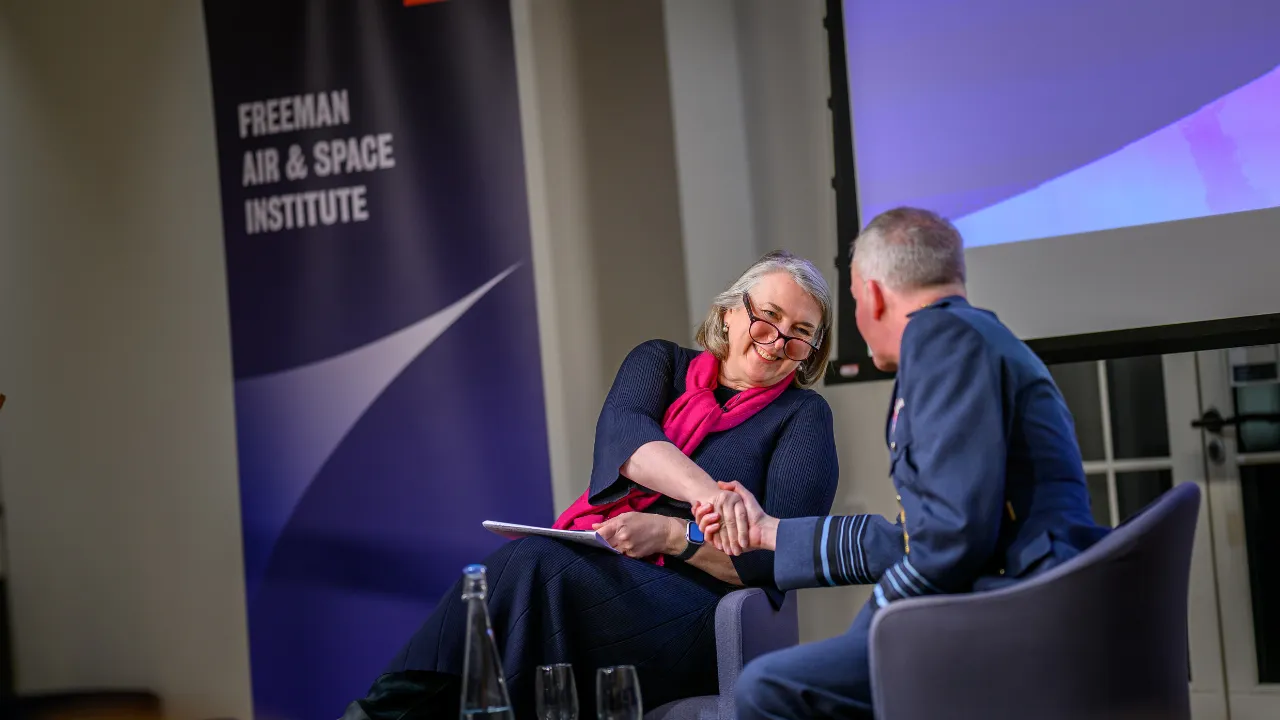
The issue of personnel retention was also highlighted. Sir Richard explored the challenges of increased exit numbers post covid and a decline in RAF recruitment.
“The air force has got smaller, and the resolution is to recruit, train and retain more.”
He emphasised that while retention remains a pressing issue he was pleased to report that exit rates have come down, with a renewed focus on pay, training and additional benefits.
The full discussion is available to watch here: https://www.youtube.com/watch?v=4bITcj4LATU
To keep informed about the latest research, opportunities and events from FASI, subscribe to their mailing list or contact the team at FASI@kcl.ac.uk

